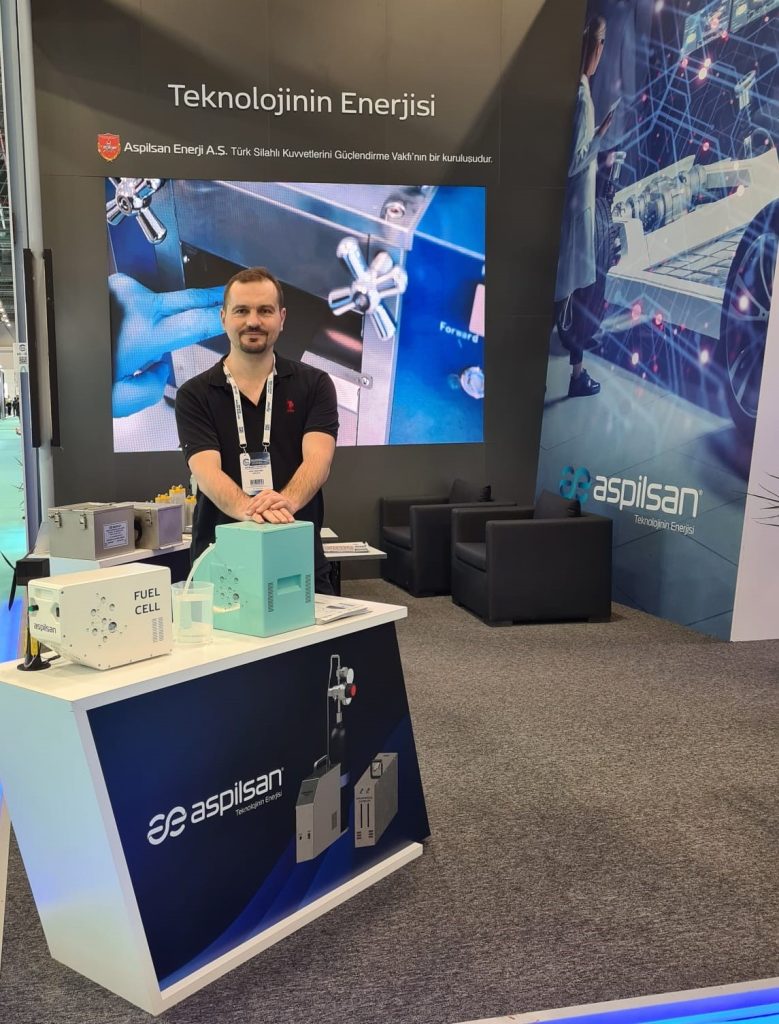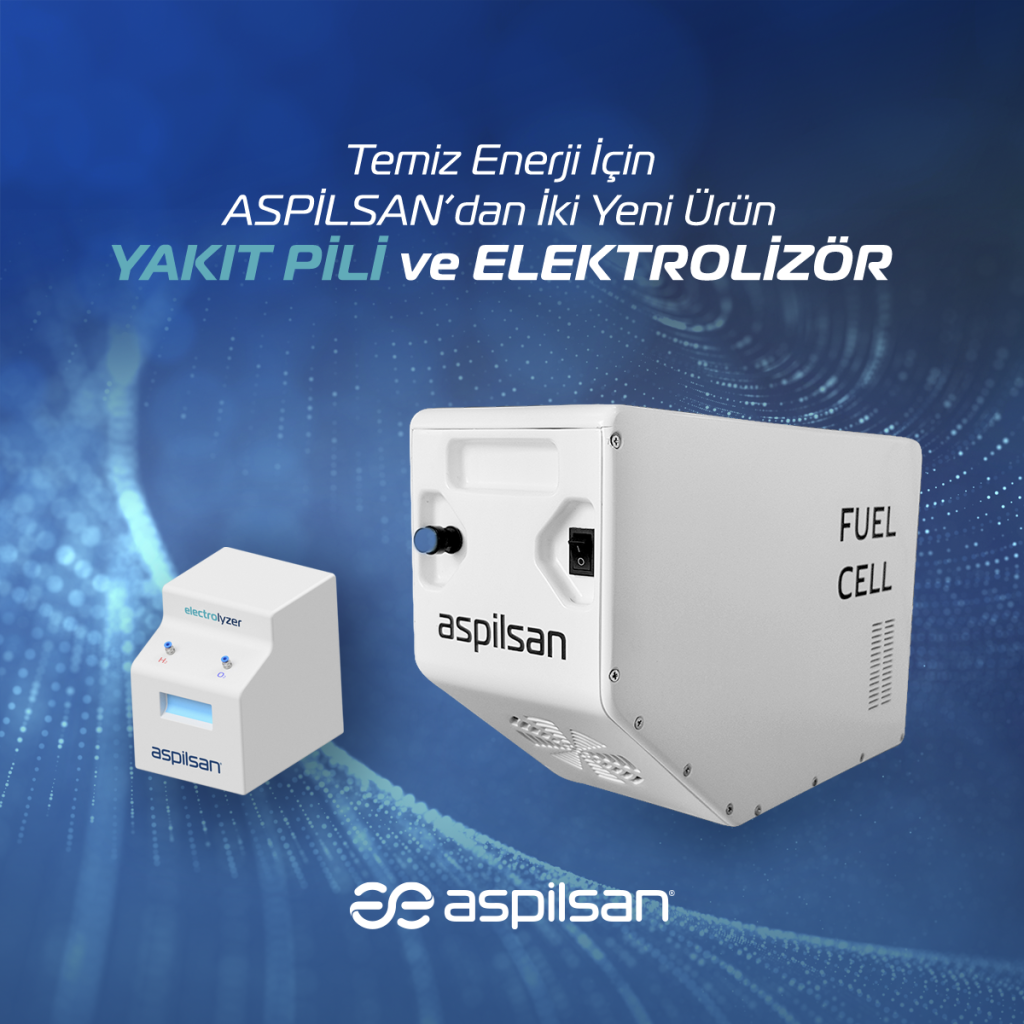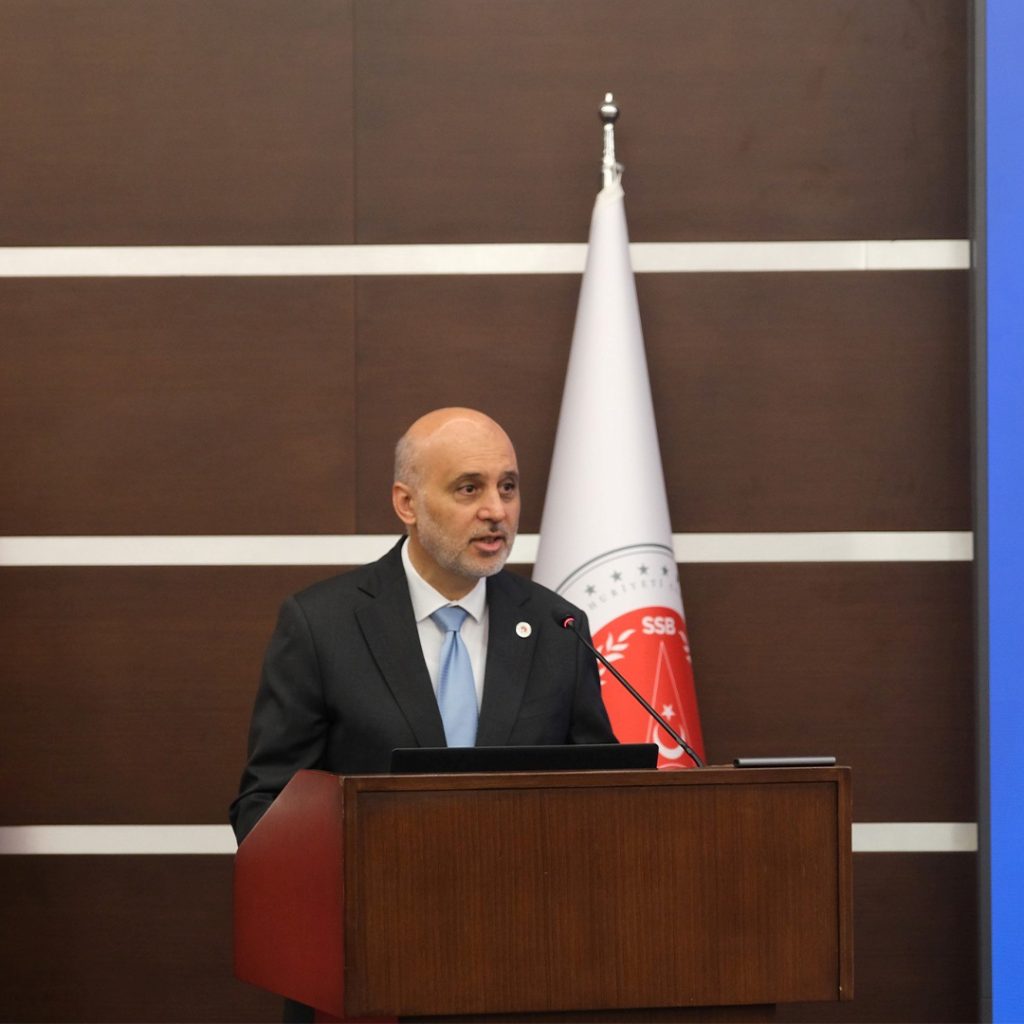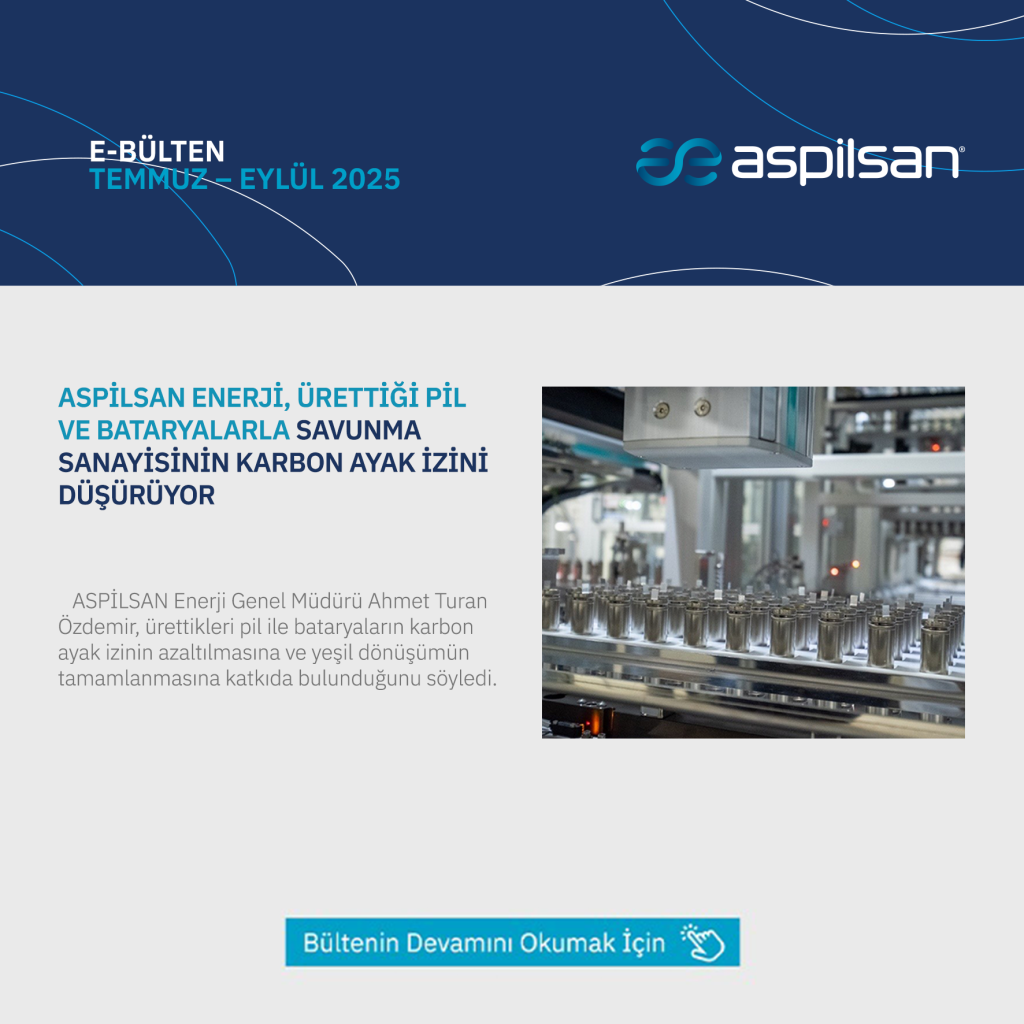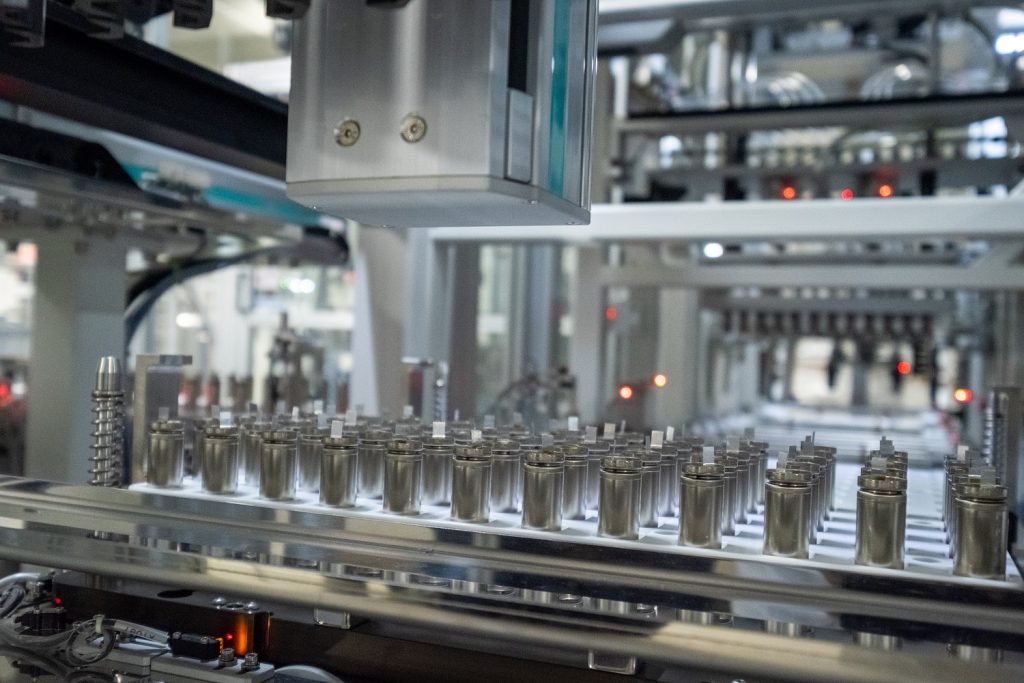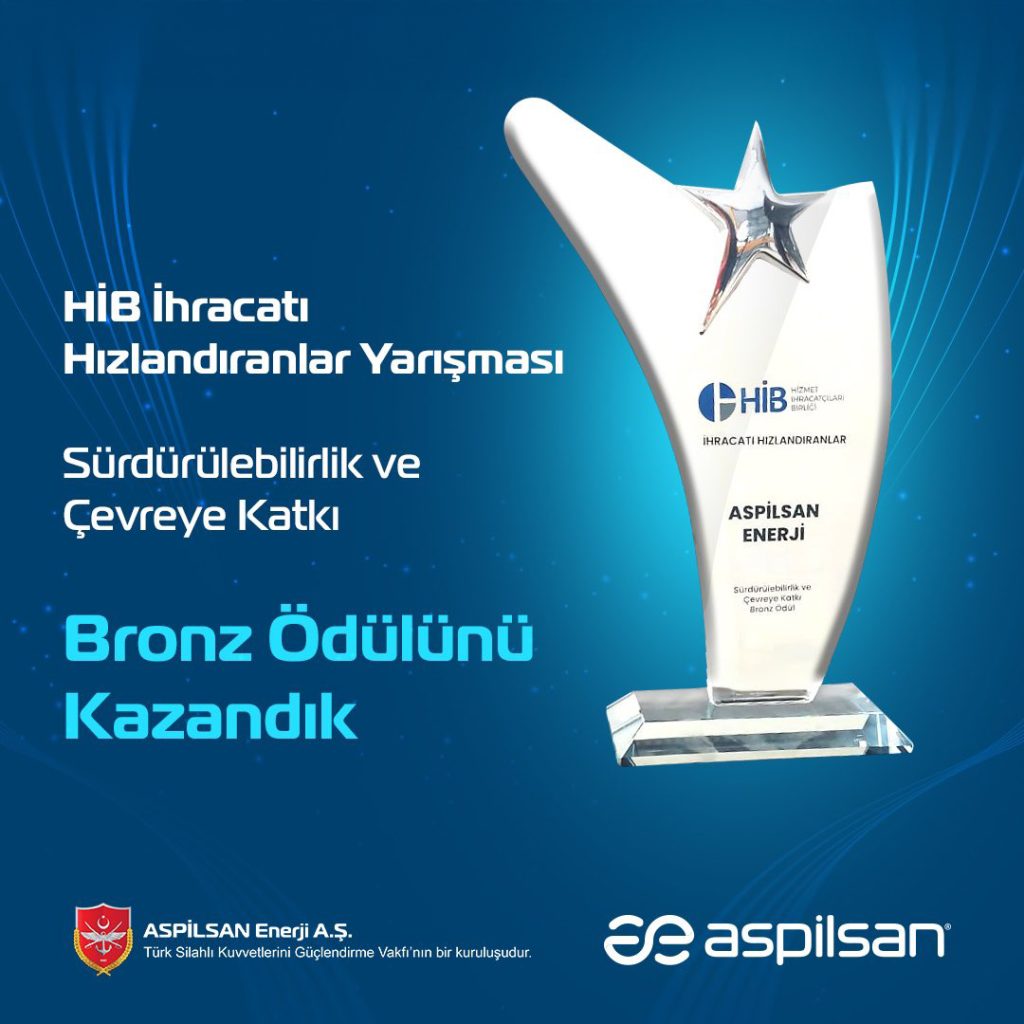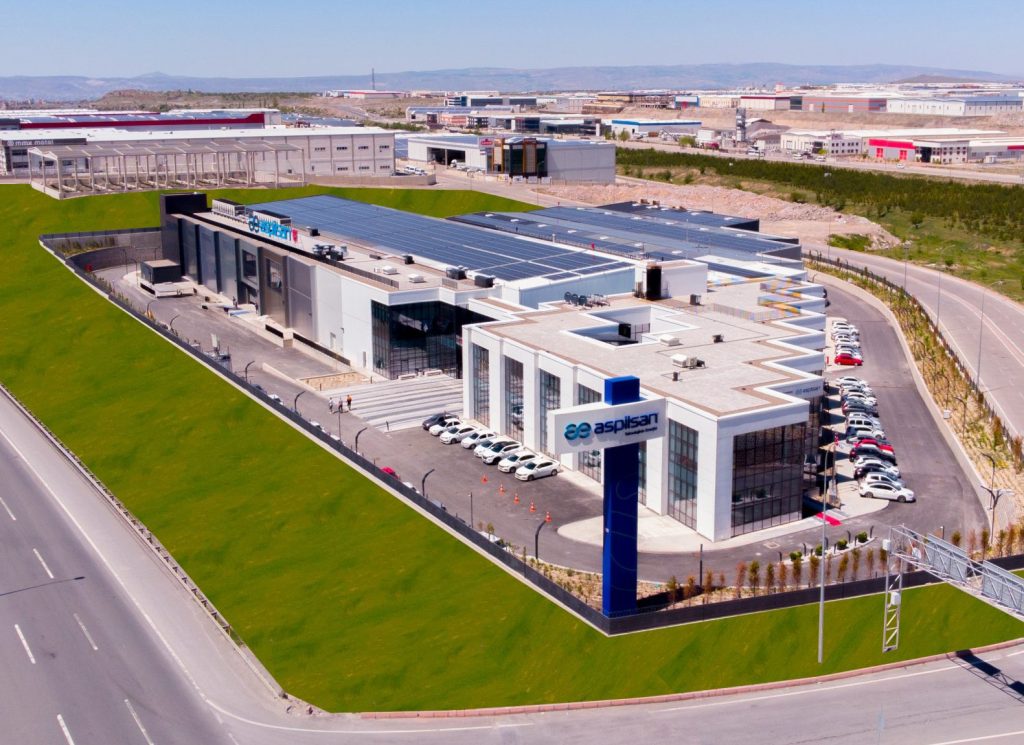SAHA EXPO, which will bring together the leaders of the defence sector at Istanbul Expo Centre between 10-13 November, will feature ASPİLSAN Enerji's newest innovations.
ASPİLSAN Enerji will launch the fuel cell during the SAHA EXPO 2021 fair, which will feature a number of firsts.
ASPİLSAN Enerji General Manager Ferhat Özsoy continued, "To date, we have been carrying out our work in order to ensure that our country can achieve its technology and renewable energy targets." He added, "To date, we have been carrying out our work in order to ensure that our country can achieve its technology and renewable energy targets." As a result, we can keep our actions moving forward at a faster pace.
Nowadays the majority of the world's energy needs are met today by fossil fuels, which have negative environmental consequences. Environmental issues such as global warming, climate change, air pollution, and the greenhouse effect are caused by harmful gases produced by the usage of fossil fuels. Furthermore, there is a limit to fossil fuel reserves, which are fast depleting due to rising energy demand. As a result, as the hunt for alternative energy sources becomes more significant, hydrogen stands out among alternative fuels due to its numerous benefits. Hydrogen is widely employed in a variety of industries, including ammonia/fertilizer, petrochemical/refinery, glass, and aerospace and defence systems. Only 4% of hydrogen is produced as clean (green) in the world today, using various manufacturing methods. Many governments have begun to explain the "Hydrogen Roadmap" and hydrogen plans in this regard, particularly in light of the COVID-19 pandemic. Eighteen countries, representing 70% of global GDP, have created specific strategy for implementing hydrogen energy solutions. The EU has set a number of milestone goals, including reducing carbon emissions by 55 percent by 2030 by including industry and energy businesses, and transitioning to a zero-carbon economy by 2050. As a result, our country has ratified the Paris Climate Accord.
ASPİLSAN Enerji in Today's and Future's Technology
ASPİLSAN Enerji is a member of the European Clean Hydrogen Alliance, a group of European firms, universities, and research institutes committed to achieving carbon-free climate targets by 2050.
Hydrogen will be used not just for today's applications and energy, but also for heat in industry and as a transportation fuel to reach zero carbon emissions. The hydrogen economy encompasses the domains of hydrogen generation, storage, transmission/distribution, and use. In this regard, as ASPİLSAN Enerji, we work with our Istanbul R&D Unit on the production (electrolyser) and use (fuel cells) of clean (green) hydrogen within the hydrogen ecosystem.
In addition, at the 6th Battery Technologies Conference, which we will host between the 15th and 17th of December 2021 as part of our clean energy effort, we will address energy solutions in the context of global technical breakthroughs and climate change. Informative panels on local and national battery cells, which will lessen our reliance on foreign sources, will bring together key representatives from prominent institutions in the field, as well as researchers from top universities. With the valuable outputs that will come from this, the sector will gain significantly.
Two New Products from ASPİLSAN for Clean Energy
About the developed products, Emre Ata, Director of ASPİLSAN Enerji Istanbul R&D Centre, said the following. "We want to develop PEM type electrolysers in our Istanbul R&D centre since they can produce high purity hydrogen and oxygen (99.999 percent) and are an industrially established system. Membrane electrode set (MET/MEA), which is considered the heart of these electrolyser systems, can be manufactured in our Istanbul R&D Centre, which conducts research on domestic and national production of this type of electrolyser, which can work at various scales. Furthermore, both the anode and cathode layers' catalysts are produced, and the electrolyser layers (plate, plate, index) are designed locally within the unit. Electrolysers with a power range of 500 W to 10 kW are still being developed. At the Istanbul R&D Centre, we continue our research on alkali and anion variable membrane (AEM) electrolysers in addition to PEM type electrolysers.
Fuel cells are used in the consumption part of the green hydrogen ecosystem. To convert the chemical energy in the fuel into electrical energy, conventional power generation systems require a number of intermediate processes, each of which reduces the efficiency of the system. Fuel cells are distinguished from traditional batteries by their ability to create energy constantly as long as the fuel is supplied, without the need for recharging. Vehicles with built-in, portable, distributed, and emergency power generation systems/prototypes include UAVs, forklifts, automobiles, trucks, and buses.
Fuel cells are used in the consumption part of the green hydrogen ecosystem. To convert the chemical energy in the fuel into electrical energy, conventional power generation systems require a number of intermediate processes, each of which reduces the efficiency of the system. Fuel cells are distinguished from traditional batteries by their ability to create energy constantly as long as the fuel is supplied, without the need for recharging. Vehicles with built-in, portable, distributed, and emergency power generation systems/prototypes include UAVs, forklifts, automobiles, trucks, and buses.
With qualities like as high energy density, minimal thermal trace, extended range, fast filling, and virtually completely silent operation, fuel cell land vehicles are gaining popularity in both the defence and civilian sectors. Not only in land vehicles, but also in air (UAV-SHA) and sea vehicles, fuel cell vehicles are particularly convenient technologies for extending the duty term (submarine).
At our Istanbul R&D Centre, ASPİLSAN Enerji continues to research PEM type fuel cells. Fuel cell designs can range from 50 watts to 100 kilowatts. In addition to PEM fuel cell research, R&D on Direct Methanol Fuel Cell (DMFC), Direct Ethanol Fuel Cell (DEFC), and Solid Oxide Fuel Cell (SOFC) fuel cells is ongoing in our Istanbul R&D Centre.
ASPİLSAN Enerji's Istanbul R&D Centre first developed a hydrogen ecosystem demo within itself thanks to both products we released, and continues to work to offer answers to our country's green hydrogen transition."

